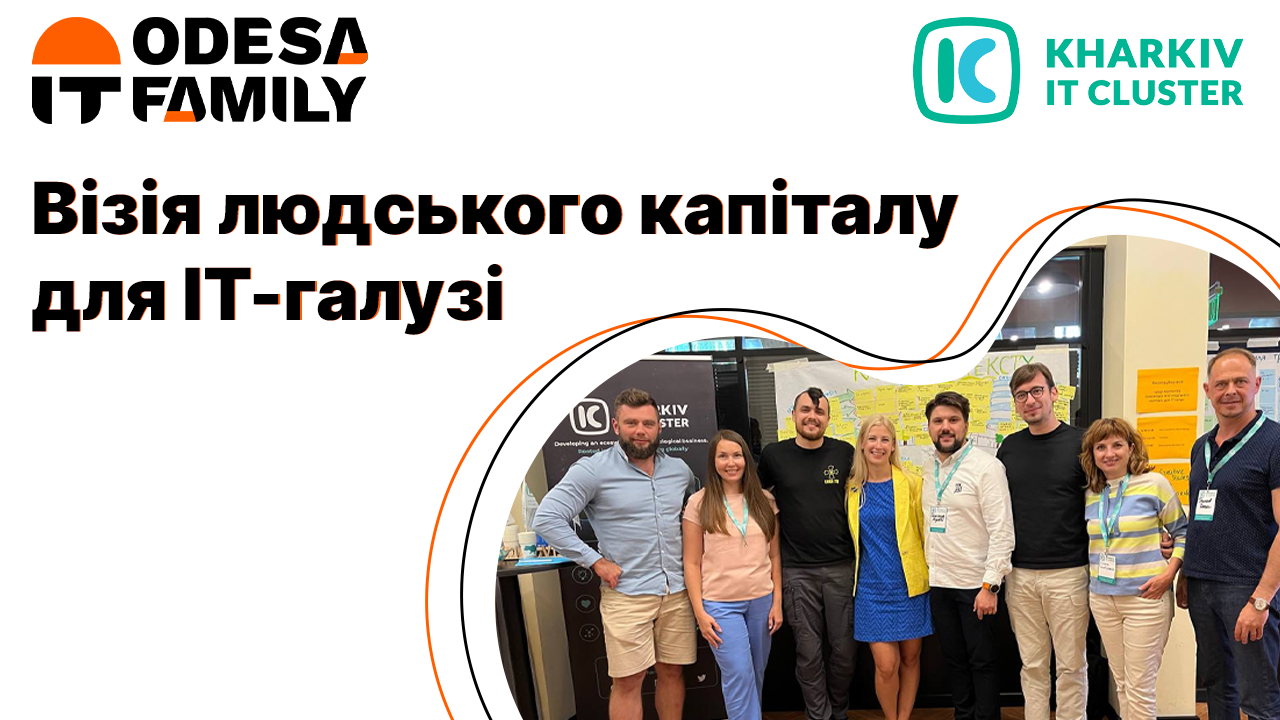The world does not stand still and this should be realized. Kharkiv IT Cluster initiated a facilitation session with key stakeholders in IT education on the human capital vision for the IT industry. Odesa IT Family was honored to be a part of such a significant event for the industry.
For the IT industry people are the foundation, but the challenge of the shortage of specialists has changed – it is influenced by global trends and context (recession, slowdown of digitalization post-covid, development of access to AI, etc.). The IT industry is recognized as one of those that will be the basis of a renewed peaceful Ukraine. But you need to work today, while having a vision of the future. This is a difficult question to discuss in the conditions of war, but it is necessary.
The main stakeholders of changes in our country joined the strategy: the Ministry of Digital Transformation of Ukraine, the Ministry of Economy of Ukraine, the Ministry of Education and Science; representatives of the National Agency for Quality Assurance of Higher Education, USAID, Institute of Demography and Social Research; Chairman of the Council of the Coalition of Business Communities for the Modernization of Ukraine and heads of Odesa IT Family, Lviv IT Cluster, IT Dnipro Community and IT Ukraine Association.
Our cluster was represented by Kateryna Solovei, CEO of Odesa IT Family.
The impact of various factors on the development of the IT industry, including military realities, was considered through joint efforts. However, the main emphasis was placed on the importance of human capital as the main resource for change.
A kind of context map was created, which was divided into the following subsections:
technological factors (development of AI, LLM, Blokchain, outdated base for beginners, change of development paradigm, etc.);
human capital (demography, no jobs for juniors, outflow of people, attraction of talents to the IT industry from other countries, low digital literacy, etc.);
socio-cultural factors (brand of the profession as a challenge to society, lack of educational content in Ukrainian, lack of understanding of the importance of the social and cultural sphere, inclusiveness, etc.).
security, political factors (support of partners, restriction of rights and freedoms in wartime, psychology of war, mobilization of workers, etc.);
economic factors (general decline of Ukraine’s economy, recession, reservations, corruption, FPOs, Diya.City, etc.);
uncertainties (internal migration, demobilization, blackout, escalation of hostilities, pandemic, etc.).
Most importantly a vision has been created that paves the way for new opportunities, growth, and achievement. This event is the start of discussions that will certainly continue with the involvement of all stakeholders.
